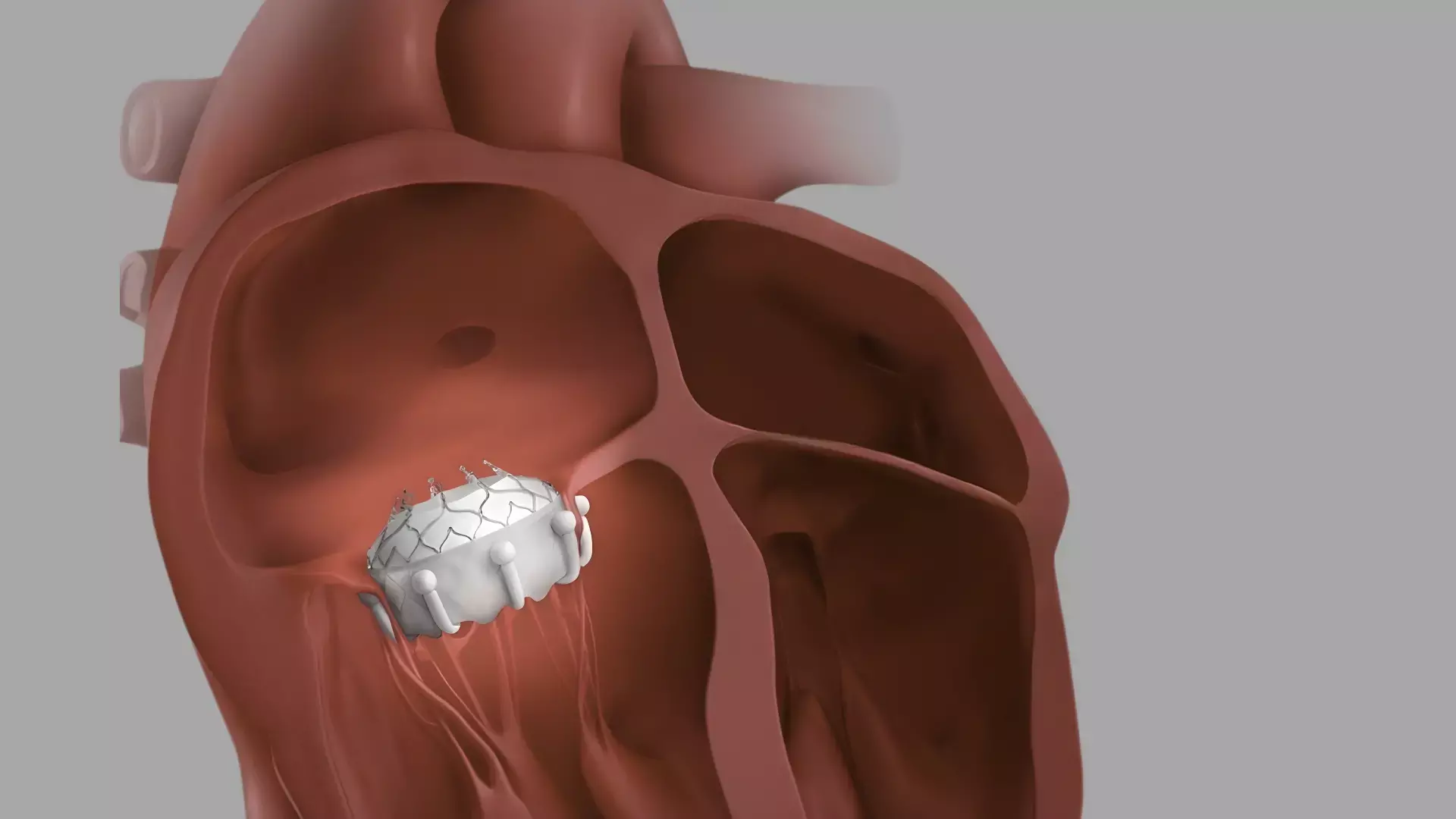- Home
- Medical news & Guidelines
- Anesthesiology
- Cardiology and CTVS
- Critical Care
- Dentistry
- Dermatology
- Diabetes and Endocrinology
- ENT
- Gastroenterology
- Medicine
- Nephrology
- Neurology
- Obstretics-Gynaecology
- Oncology
- Ophthalmology
- Orthopaedics
- Pediatrics-Neonatology
- Psychiatry
- Pulmonology
- Radiology
- Surgery
- Urology
- Laboratory Medicine
- Diet
- Nursing
- Paramedical
- Physiotherapy
- Health news
- Fact Check
- Bone Health Fact Check
- Brain Health Fact Check
- Cancer Related Fact Check
- Child Care Fact Check
- Dental and oral health fact check
- Diabetes and metabolic health fact check
- Diet and Nutrition Fact Check
- Eye and ENT Care Fact Check
- Fitness fact check
- Gut health fact check
- Heart health fact check
- Kidney health fact check
- Medical education fact check
- Men's health fact check
- Respiratory fact check
- Skin and hair care fact check
- Vaccine and Immunization fact check
- Women's health fact check
- AYUSH
- State News
- Andaman and Nicobar Islands
- Andhra Pradesh
- Arunachal Pradesh
- Assam
- Bihar
- Chandigarh
- Chattisgarh
- Dadra and Nagar Haveli
- Daman and Diu
- Delhi
- Goa
- Gujarat
- Haryana
- Himachal Pradesh
- Jammu & Kashmir
- Jharkhand
- Karnataka
- Kerala
- Ladakh
- Lakshadweep
- Madhya Pradesh
- Maharashtra
- Manipur
- Meghalaya
- Mizoram
- Nagaland
- Odisha
- Puducherry
- Punjab
- Rajasthan
- Sikkim
- Tamil Nadu
- Telangana
- Tripura
- Uttar Pradesh
- Uttrakhand
- West Bengal
- Medical Education
- Industry
EVOQUE Transcatheter Tricuspid Valve Replacement (TTVR) Demonstrates Favorable Real-World Outcomes: Early U.S. Experience Confirms Safety, Effectiveness, and Quality-of-Life Gains

This news is covered by the Medical Dialogues Bureau present at the TCT Conference 2025, being held in San Francisco, USA.
Transcatheter tricuspid valve replacement (TTVR) with the EVOQUE system achieved near-complete elimination of tricuspid regurgitation (TR), significant improvements in functional capacity and quality of life, and low complication rates at 30 days, according to the first U.S. real-world data from the STS/ACC TVT Registry. The results were presented by Dr Rahul Sharma of Stanford University at TCT 2025.
The registry analysis evaluated early commercial outcomes of the EVOQUE system, a transcatheter tricuspid valve replacement device designed for patients with severe, symptomatic TR who are at high surgical risk. Data were collected from 1,034 patients treated at 82 sites across the United States between February 2024 and March 2025. The analysis was performed by the Smith Center for Outcomes Research at Beth Israel Deaconess Medical Center.
Tricuspid regurgitation is associated with right heart failure, frequent hospitalizations, and increased mortality. The EVOQUE system features a self-expanding nitinol frame and intra-annular sealing skirt, allowing it to conform to the native valve anatomy and effectively eliminate regurgitation. This registry provides the first large-scale, real-world assessment of the device’s safety and efficacy following U.S. commercial introduction.
Procedural success was high, with most cases completed via transfemoral access. Median hospital stay was two days, and nearly all patients were discharged home. In-hospital all-cause mortality was 2.3%, rising slightly to 3.1% at 30 days. Cardiovascular mortality was 2.0%, while major or life-threatening bleeding occurred in 1.3%, and major vascular complications in 1.4%. The rate of new pacemaker implantation was 9.9%, and tricuspid valve reintervention occurred in only 0.5% of patients. Thirty-day heart failure hospitalization was reported in 3.1%.
Echocardiographic outcomes showed excellent procedural success, with more than 97% of patients achieving mild or less residual TR at 30 days. Functional capacity and quality of life improved markedly, reflected by enhanced New York Heart Association (NYHA) class and Kansas City Cardiomyopathy Questionnaire (KCCQ) scores. These benefits were consistent across subgroups, including those with and without prior pacemakers.
Notably, bleeding and pacemaker rates were lower than previously seen in randomized studies, suggesting improved procedural techniques and operator experience during real-world adoption.
Investigators acknowledged limitations such as the absence of core laboratory adjudication for echocardiographic data and reliance on site-reported events without centralized clinical events committee review. As an observational registry, findings may be influenced by incomplete data reporting.
In summary, the early U.S. commercial experience from the STS/ACC TVT Registry demonstrates that the EVOQUE system provides a safe, effective, and durable transcatheter option for patients with severe tricuspid regurgitation. The strong 30-day outcomes reinforce its role as a transformative therapy in managing right-sided heart valve disease, with broad applicability across U.S. centers.
Reference: Rahul Sharma et al., Evaluating Real-World Outcomes of TTVR - Early commercial experience from the STS/ACC TVT Registry with the EVOQUE System, TCT Conference 2025, San Francisco.
https://www.tctconference.com/
About the study presenter: Dr Rahul P. Sharma, MBBS, FRACP is the Director of Structural Interventions at Stanford Healthcare, Associate Director of the Cardiac Catheterization Laboratory and Clinical Professor of Medicine at Stanford University. Dr Sharma graduated from Monash University and completed his medicine and cardiology training at the Alfred Hospital in Melbourne, Australia. He completed an advanced interventional and structural fellowship at Cedars Sinai Medical Center in Los Angeles, California before joining Cedars Sinai as Clinical Faculty, Director of the Structural Imaging Core Laboratory and Associate Director of Interventional Cardiology Research. He was recruited to the role of Director of Structural Interventions at Stanford Healthcare in 2019. He has specialized clinical and research interests in structural heart disease, particularly transcatheter valve therapy and the application of artificial intelligence to healthcare. He has a large volume of expertise in transcatheter aortic, mitral and tricuspid replacement and repair, left atrial appendage occlusion, PFO/ASD/VSD closure, alcohol septal ablation and cerebral protection.
Dr Prem Aggarwal, (MD Medicine, DNB Medicine, DNB Cardiology) is a Cardiologist by profession and also the Co-founder and Chairman of Medical Dialogues. He focuses on news and perspectives about cardiology, and medicine related developments at Medical Dialogues. He can be reached out at drprem@medicaldialogues.in


